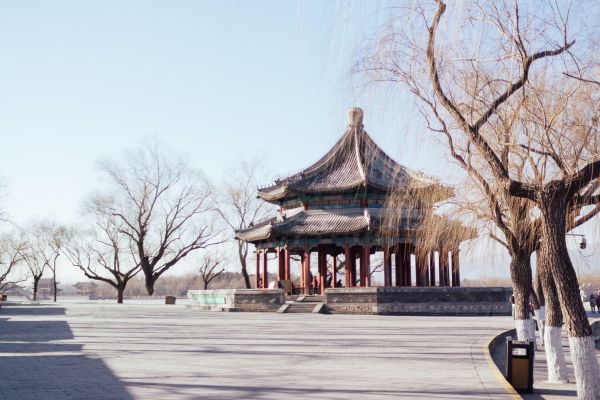
The author of the article is Judge Gao Xiaoli (高曉力), who is the deputy director of China’s Supreme People’s Court (SPC)’s 4th Civil Division. In this article, she summarizes the practices by Chinese courts in the recognition and enforcement of foreign arbitral awards, and demonstrates the SPC’s attitude towards certain relevant issues. One of the responsibilities of the SPC’s 4th Civil Division, where she works, is to direct Chinese courts at all levels in the hearing of foreign-related civil and commercial cases, including the recognition and enforcement of foreign arbitral awards and foreign judgments.
This post is the second part of an introduction to the article titled “The Positive Practice by Chinese Courts in Recognizing and Enforcing Foreign Arbitral Awards” (中國法院承認和執行外國仲裁裁決的積極實踐), which was published in “Journal of Law Application” (法律適用) (No. 5, 2018). “Journal of Law Application” is a periodical of the China National Judges College, which is affiliated with the SPC and is the major education and training institution for Chinese judges.
(3) Whether it constitutes the excess of authority (outside or beyond the scope of the arbitration agreement)
In general, the excess of authority ground refers to two situations; one is that the awards decide issues falling outside the terms of the submission to arbitration, and the other is that the awards contain decisions on matters beyond the scope of the submission to arbitration. When the respondent applies to a Chinese court to render a ruling against recognition and enforcement of the arbitral award, the excess of authority is the most commonly used ground.
In some cases, Chinese courts have already supported such claims, such as the case of “Application of Gerald Metals Inc in the US to Wuhu Intermediate People's Court of Anhui Province for the recognition and enforcement of an arbitral award made by London Metal Exchange”. The SPC also points out that if the decisions on matters submitted to arbitration can be separated from those not so submitted, that part of the award which contains decisions on matters submitted to arbitration shall be recognized and enforced in Chinese courts.
(4) Whether the arbitral procedure is not in accordance with the arbitral rules and the law of the seat of the arbitration
Also, respondents often apply to Chinese courts to render a ruling against recognition and enforcement of the arbitral award on the ground that the arbitral procedure violates the arbitral rules and the law of the seat of arbitration. This claim can be supported by Chinese courts, such as the case of “Application of Noble Resources International Pte Ltd for the recognition and enforcement of an arbitral award made by Singapore International Arbitration Centre in Singapore”.
(5) Whether the arbitral award is final
At present, there are no respondents opposing recognition and enforcement of foreign arbitral awards on this ground. Therefore, Chinese courts have not yet tried such cases.
(6) Whether the subject matter of the difference is not capable of settlement by arbitration
In accordance with Article V(2)(a) of the New York Convention, if the subject matter of the difference is not capable of settlement by arbitration under Chinese law, Chinese courts may refuse to recognize and enforce the arbitral award. So far there is only one case, where a Chinese court refused to recognize and enforce a foreign arbitral award on this ground, that is, a succession case mentioned in the SPC’s reply (2009) Min Si Ta Zi No. 33 ((2009)民四他字第33號). According to Article 3 of the PRC Arbitration Law, succession disputes may not be arbitrated.
(7) Whether the arbitral award is contrary to the public policy of China?
Chinese courts take a very cautious approach to the public policy exception. Although in most cases, the respondents will defend themselves on the ground that the foreign arbitral awards are contrary to Chinese public policy, Chinese courts rarely support such claims. So far, Chinese courts have refused to recognize and enforce foreign arbitral awards in only one case on the ground of public policy, i.e. in the case of “Application of Hemofarm DD, MAG International Trading Co., Ltd., and Surah Media Co., Ltd.for the recognition and enforcement of an arbitral award made by the ICC International Court of Arbitration in 2008”.
3. The SPC endeavors to promote uniformity in the application of the New York Convention among Chinese courts at all levels
In China, there are more than 400 courts from over 30 provinces, which are competent to hear cases of application for recognition and enforcement of foreign arbitral awards. In order to ensure uniformity in the application of the New York Convention among these courts, the SPC has taken various measures.
(1) Promulgating the Implementation Circular
After China acceded to the New York Convention at the end of 1986, on 10 April 1987 the SPC promptly promulgated “the Circular on the Implementing Convention on the Recognition and Enforcement of Foreign Arbitral Awards Entered by China” (Fa (Jing) Fa [1987] No. 5) (法(經)發[1987]5 號《關于執行我國加入的〈承認及執行外國仲裁裁決公約〉的通知》), and it provides guiding principles on several noteworthy issues in the implementation of the New York Convention.
(2) Establishing a reporting system
In 1995, the SPC promulgated “the Circular of the Supreme People's Court on Issues in the People's Courts' Handling of Foreign-related Arbitrations and Foreign Arbitrations” (最高人民法院關于人民法院處理與涉外仲裁及外國仲裁事項有關問題的通知) (hereinafter referred to as the “Circular”). The Circular stipulates that if the court concerned intends to refuse to recognize and enforce a foreign arbitral award, it shall report the application to its supervising High People’s Court for review and if the High People's Court consents to refuse to recognize and enforce the same, it shall report to the SPC for review. The local court may not refuse to recognize and refuse the award until receiving a reply from the SPC.
By this way, the SPC hopes to strictly supervise the cases where Chinese courts at various levels refuse to recognize and enforce foreign arbitral awards, and to minimize the number of the cases of refusal to recognize and enforce foreign arbitral awards.
At the end of 2017, the SPC issued the “Provisions on Issues Concerning the Reporting and Approval in the Judicial Review of Arbitration Cases” (關于仲裁司法審查案件報核問題的有關規定), which further confirms and refines the reporting system, and extends the application of the system further to the review of foreign-related commercial arbitration awards made by mainland Chinese arbitration institutions.
(3) Clarifying the review procedures
In the “Interpretation on the Application of the Civil Procedure Law of the People's Republic of China” (關于適用《中華人民共和國民事訴訟法》的解釋) that the SPC promulgated in 2015, it clearly stipulates certain procedural matters, such as distinguishing the procedures between recognition and enforcement, the two-year time limit for the submission of an application for recognition and enforcement of foreign arbitral awards, and that the court rulings on/against recognition and enforcement of foreign arbitral awards shall come into legal effect once served, and are not subject to appeal.
At the end of 2017, the SPC issued the “Provisions on Several Issues Concerning the Trial of Judicial Review of Arbitration Cases” (關于審理仲裁司法審查案件若干問題的規定) to further specify the procedures of judicial review, therefore the procedures are more operational.
(4) Issuing Replies regarding particular cases
Through the aforementioned reporting system, the SPC reviewed numerous requests from the local courts that intend not to recognize and enforce foreign arbitral awards. The SPC responded to these local courts and publish its replies in the periodical edited by its 4th Civil Division, so as to clarify the judicial attitude of the SPC. Though only binding on the lower courts regarding particular cases, the SPC’s replies set out the principles that are highly persuasive to all courts nationwide. Undoubtedly, this is an important approach for the SPC to promote uniformity in the application of the New York Convention among Chinese courts at all levels, in particular on the review criteria for Article V of the Convention. All cases mentioned in this article are cases with the SPC’s replies.
(5) Information construction
The SPC is building up an information management platform for judicial review of arbitration cases, in order to provide a unified management system for courts at all levels in China to handle such cases. The SPC hopes that the procedures will be made more transparent through the platform, and the review criteria will be unified among all local courts.
(6) Judge training
The SPC conducts annual training for judges of the courts at all levels, and the judicial review of international commercial arbitration cases is a key part of the training. At the same time, the SPC has also strengthened its ties with the international arbitration sector and often appointed its personnel to participate in international conferences so as to follow up the research on the frontier issues of international commercial arbitration.
If you would like to discuss with us about the post, or share your views and suggestions, please contact Ms. Meng Yu (meng.yu@chinajusticeobserver.com ).
If you need legal services for the recognition and enforcement of foreign judgments and arbitral awards in China, please contact Mr. Guodong Du (guodong.du@chinajusticeobserver.com ). Du and his team of experienced attorney will be able to assist you.
If you wish to receive news and gain deep insights on Chinese judicial system, please feel free to subscribe to our newsletters (subscribe.chinajusticeobserver.com ).
Contributors: Guodong Du 杜國棟 , Meng Yu 余萌









